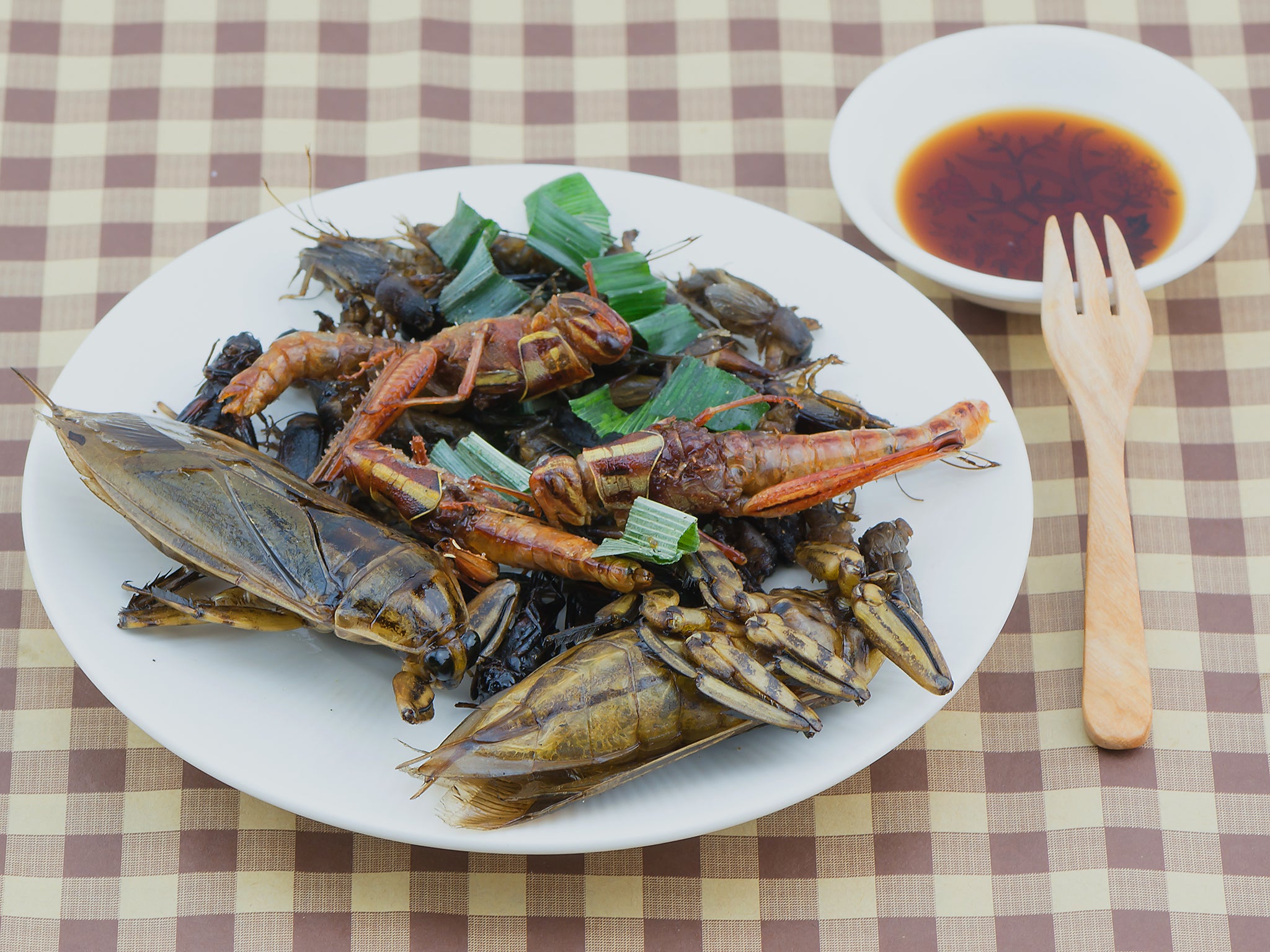Belgian start up puts crickets on the menu
For the same amount of protein as a cow, crickets need 25 times less food and 300 times less water.

Your support helps us to tell the story
From reproductive rights to climate change to Big Tech, The Independent is on the ground when the story is developing. Whether it's investigating the financials of Elon Musk's pro-Trump PAC or producing our latest documentary, 'The A Word', which shines a light on the American women fighting for reproductive rights, we know how important it is to parse out the facts from the messaging.
At such a critical moment in US history, we need reporters on the ground. Your donation allows us to keep sending journalists to speak to both sides of the story.
The Independent is trusted by Americans across the entire political spectrum. And unlike many other quality news outlets, we choose not to lock Americans out of our reporting and analysis with paywalls. We believe quality journalism should be available to everyone, paid for by those who can afford it.
Your support makes all the difference.Eating insects is common practice in many countries around the world, but in Brussels, a start-up hopes to add crispy crickets to the menu.
The start-up “Little-Food” prepares and promotes food products made from crickets as an environmentally friendly and protein rich alternative to meat.
After breeding the crickets the insects are dried out in an oven and readied for consumption. Little-Food sells the crunchy crickets in grocery shops and serves them up in a variety of flavours, including garlic and tomato. The insects can even be turned into flour and used as a protein rich ingredient for baking.
Eating crickets is significantly better for the environment, often touted as a valuable solution to food shortages and a way of combating the negative environmental effects of meat production.
“For the same amount of protein as a cow for instance, they (crickets) need 25 times less food, they need 300 times less water, and they produce 60 times less greenhouse gases,” Little Food cricket breeder Nikolaas Viaene told Reuters.
Little-Food began by farming crickets in a private apartment and have since expanded to a three floor building in the city.
The company hopes to follow in the footsteps of countries such as China, Ghana, Mexico and Thailand where crickets are a widely-eaten delicacy.
But some members of the wider public remain sceptical. Brussels resident, Efthimia Lelecas declined the offer of a cricket snack telling Reuters: “No, I’m not eating that…no, no, that looks awful”.
In 2013, a report by the United Nations Food and Agriculture Organisation suggested that while current farming practises are unsustainable, edible insects present a viable, nutritious resource.
If we want to help meet the demands of our ever-growing population, crunching critters could be a clear solution.
Join our commenting forum
Join thought-provoking conversations, follow other Independent readers and see their replies
Comments